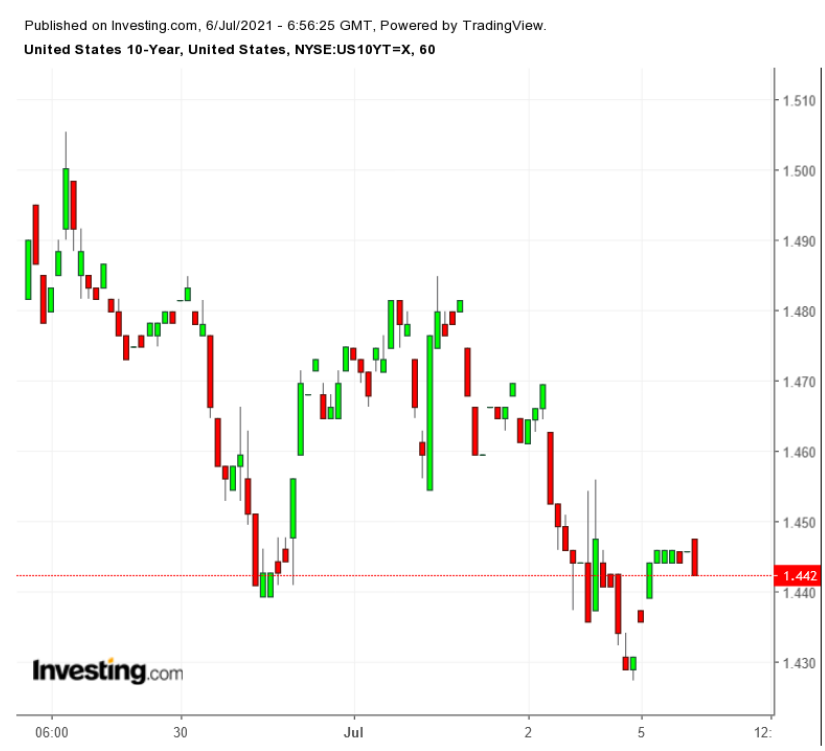Investors in U.S. Treasuries are shrugging off inflation worries and keeping yields well-contained. They seem to accept the argument from Federal Reserve policymakers that the recent increase in inflation will be transitory.
Break-even inflation rates, derived from the yield difference between conventional and inflation-indexed Treasuries, peaked in May and have declined since then. The two-year break-even rate was the highest at the peak, nearing 3%, followed by the five-year break-even and the 10-year, which barely crested 2.5%.
However, the dot-plot graphs and median forecasts released with the mid-June meeting of the Federal Open Market Committee surprised investors as a majority of FOMC members penciled in two interest-rate increases by end-2023 after previously forecasting the first increase for 2024.
Cold Feet On Hot Inflation?
As one analyst suggested, Fed policymakers may be getting cold feet about letting inflation run hot for an extended length of time, however flexible they say they want to be.
This could help explain the conundrum of the yield on the benchmark 10-year Treasury declining on Friday when the June jobs report showed a stronger-than-expected 850,000 new jobs.

The 10-year yield spiraled further downward after dipping below 1.5% earlier in the week, finishing up at about 1.43% ahead of the long holiday weekend.
A decline in monetary stimulus would mean somewhat slower growth and lower inflation as the Fed keeps a lid on the economy. That in turn would hold Treasury yields in check.
Investors will scrutinize the minutes of the June FOMC meeting for clues about Fed intentions. There will be another policy meeting July 27-28 and the annual Jackson Hole symposium Aug. 26-28. There is a growing expectation that Fed Chairman Jerome Powell will give some indication of plans to taper bond purchases on one of those occasions.
ECB Expected To Maintain Easy Money Policies
In Europe, investors showed somewhat more concern about inflation. Yields on eurozone government bonds generally increased Monday after declining last week on worries about COVID-19 variants delaying economic recovery.
Travel restrictions continue to impact tourism in southern Europe and the European Central Bank expects to maintain easy money policies even as policymakers debate the future of the bank’s emergency asset purchase program.
Government bond yields seem particularly sensitive to COVID-19 infection rates and analysts are looking for yields to remain relatively low.
Luxembourg prime minister Xavier Bettel was hospitalized Sunday in serious but stable condition after testing positive for COVID-19 last week and at first experiencing only mild symptoms. He was diagnosed with low oxygen saturation as well as typical coughing, fever, and headaches.
Like some other European countries, the Grand Duchy has seen a surge in infections in recent days. Bettel’s positive test came just after attending the in-person European Union summit with 26 other leaders, but officials say strict observance of protocols made them confident no one had come in close contact with him.
Yield on the German 10-year finished up Monday at about minus 0.210%, compared to about minus 0.235% in late Friday trading. Italy’s 10-year yield tacked on about 3 basis points Monday to finish at about 0.807%.
